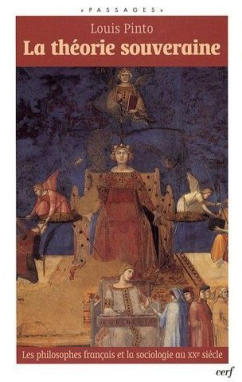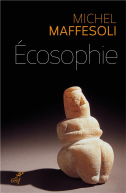
La Théorie souveraine
de Louis Pinto
Collection Passages
384 pages - mars 2009 - Droits rendus
46,20€
« La philosophie ne voyage point », déplorait Jean-Jacques Rousseau. La découverte d'autres cultures lui semblait procurer un indispensable dépaysement et une idée élargie de l'humanité. Or, depuis l'époque des Lumières, les sciences de l'homme ont connu un développement considérable que les philosophes en France n'ont pu ignorer. La sociologie en particulier, issue avec Durkheim de la discipline philosophique, n'a cessé d'être présente à leur esprit. Mais on ne peut analyser le problème qu'elle a posé à la philosophie depuis plus d'un siècle sans envisager ce que la pensée la plus théorique doit à des traditions, à des hiérarchies intellectuelles, à des découpages disciplinaires. Quatre périodes ont été étudiées ici, entre les années 1900 et les années 1970 : la première, marquée par le débat sur le durkheimisme ; la deuxième, dominée par la phénoménologie ; la troisième, placée sous l'emblème du structuralisme ; et la dernière, sous l'emblème des rapports entre politique et philosophie, savoir et pouvoir. Au lieu de recenser ou d'encenser, comme on le fait trop souvent, les pensées d'auteurs prestigieux qui ne manquent pas ici (Durkheim, Husserl, Sartre, Merleau-Ponty, Lévi-Strauss, Foucault, Bourdieu, Deleuze, Derrida, etc.), Louis Pinto s'est donné une autre tâche : celle de comprendre comment les stratégies des philosophes commandées par leur position et leurs ressources dans le champ philosophique ont favorisé l'invention d'instruments conceptuels, parmi lesquels l'antinaturalisme et l'antiobjectivisme. On est ainsi conduit à voir tout autrement les philosophes aussi bien que leurs discours.
--
‘Philosophy does not travel,’ bemoaned Jean-Jacques Rousseau. The discovery of other cultures seemed to afford him an indispensable change of scene, and a wider idea of humanity. However, since the Enlightenment, the field of humanities and social sciences has known considerable development, which French philosophers cannot ignore. Sociology in particular, an emanation - via Durkheim - of philosophical discipline, has always been present in their minds. But we cannot analyse the problem it has posed for philosophy for more than a century without confronting what the most theoretical thinking owes traditions, intellectual hierarchy and disciplinary partitions. Four periods have been studied here, between the 1900s and the 1970s: the first, marked by the debate on Durkheimism; the second, dominated by phenomenology; the third, placed under the sign of structuralism; and the last, encompassing the relations between politics and philosophy, knowledge and power. Instead of itemizing or praising the production of prestigious authors, many of whom are present here (Durkheim, Husserl, Sartre, Merleau-Ponty, Lévi-Strauss, Foucault, Bourdieu, Deleuze, Derrida, etc.), Louis Pinto has chosen another task: to understand how the strategies of philosophers, commanded by their position and their resources in the philosophical domain, have facilitated the invention of conceptual instruments, including antinaturalism and antiobjectivism. Readers are led to see philosophers and their ideas in a different light.
- Dimensions : 145x235
- ISBN : 9782204087933
- Poids : 560 grammes
DANS LA CATÉGORIE PHILOSOPHIE CONTEMPORAINE (XX-XXIE)
Philosophie et théologie dans la formation du personnalisme d'Emmanuel Mounier
de Jean-François Petit
258 pages - janv. 2006






